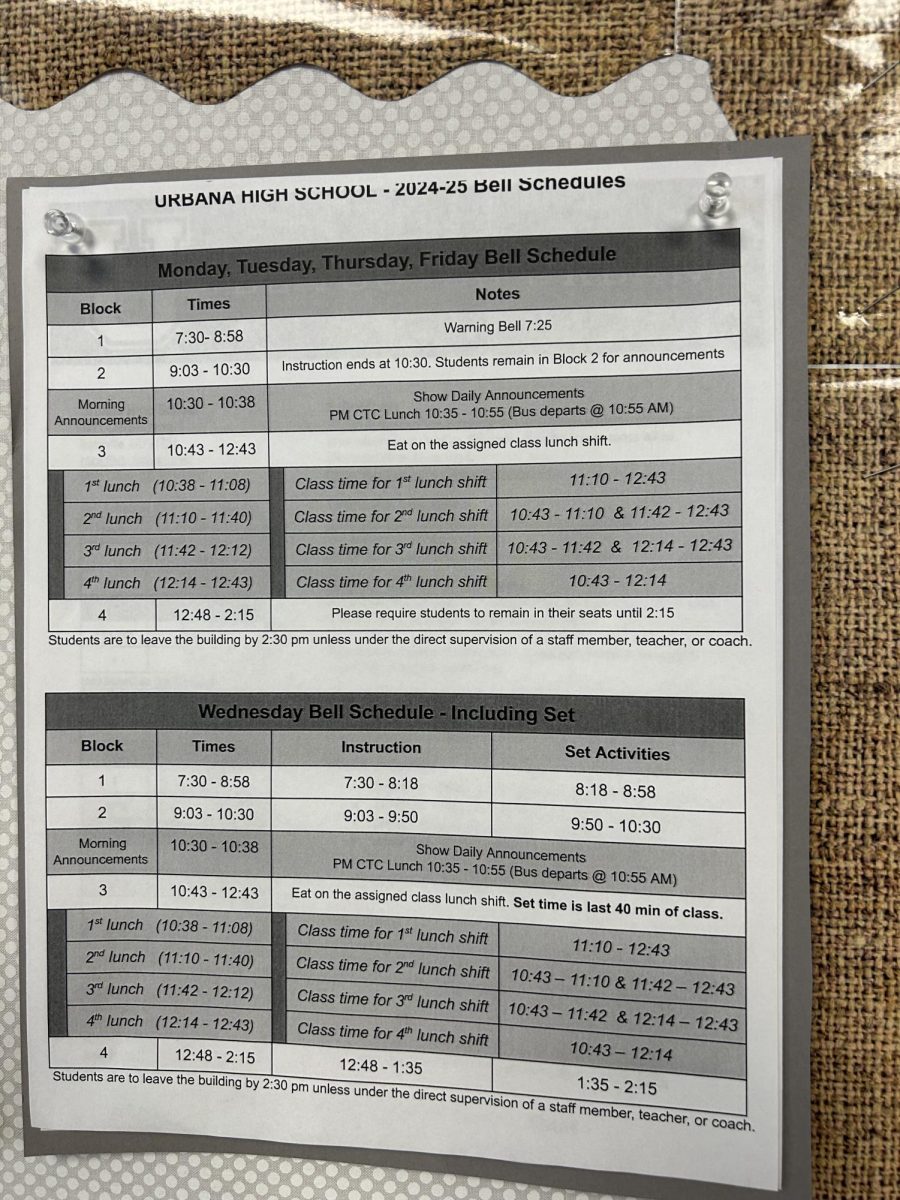
The struggle of students at UHS against the burden of textbooks, assignments, and deadlines is real. Caused by chains of homework, though have been around forever, are becoming increasingly excessive and exhausting.
Academic impact of Homework
Homework can positively reinforce what students have learned in class. It provides an opportunity to practice and apply concepts, deepening a student’s understanding of the topic. However, balance is crucial. Excessive homework can lead to stress, exhaustion, and a lack of time for other important activities.
Madison Kincaid, a 12th grader at UHS, shares her perspective: “Homework does help sometimes, but most of the time I feel like I learned one thing over and over again in the span of 5 assignments. I think that the workload is way too excessive.”
The impact of homework on students
“Homework can be extremely stressful, it makes me dread a lot of my evenings because I know what’s coming. I go to school and work for seven hours straight, then go to practice, then come home to hours more of work. I feel like I don’t even have time for myself any more, so yes, it definitely affects my mental health,” explains Reagan Davis, a 10th grader at UHS.
The primary purpose of homework is to help students, right? Therefore, student well-being should be a priority. While homework can be beneficial, it should not negatively impact students’ mental and physical health the amount that it does.
Over 50% of students at UHS participate in clubs, sports, and extracurricular activities after school. It’s unfair for teachers to assign hours of homework daily. The excessive homework load is impacting their school performance more negatively than positively.
Kayla Dickens, a 10th grader, shares her experience: “I spend about 1-2 hours on homework each night. Sometimes, it’s just way too much.”
Students stay up late every night, rushing and stressing to finish their homework. This leads to late bedtimes and exhaustion during the school day, causing them to lose focus in class.
The quality vs. quantity of homework
The focus should be on the quality of homework over quantity. It’s about learning, not just doing.
The quality of homework matters more than the quantity. Meaningful and engaging assignments that encourage critical thinking, creativity, and problem-solving skills are more effective than a large volume of repetitive tasks.
An anonymous student at UHS shares an example: ““One time I was assigned a 5 chapter reading assignment for homework along with 3 reflection assignments. The reading took me about 45 minutes I wanna say. I opened the first assignment and saw that it was 5 pages long. I completed that one in 30 minutes. Then I open the other two. Each assignment was 7 pages, and they were asking almost the same questions as the others. I didn’t learn anything new and it just felt like a big waste of my time.”
Solution to the madness
Educational policies at UHS should ensure homework is effective and not excessive.
Educational policies should aim to create a homework culture that promotes effective learning and well-being, not excessive, repetitive assignments. These policies should consider the appropriate amount of homework, taking into account students’ busy schedules, age, and mental health. Additionally, educators should provide clear instructions, timely feedback, and support to help students navigate their homework effectively, rather than using it as a way to delegate their teaching responsibilities.
It’s time to break the chains. Teachers should be teaching us, not textbooks!









































